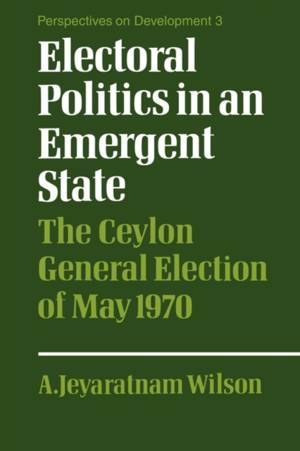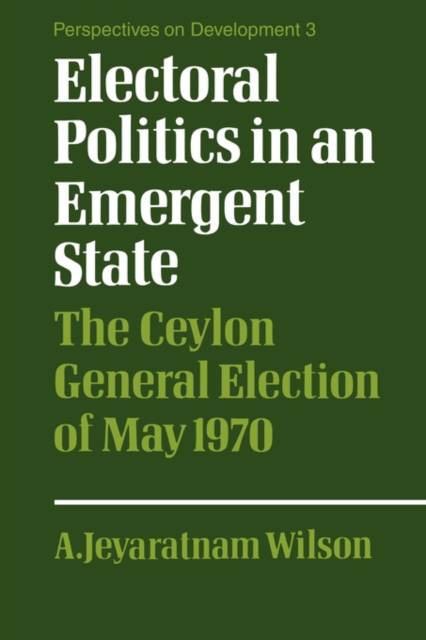
- Afhalen na 1 uur in een winkel met voorraad
- Gratis thuislevering in België vanaf € 30
- Ruim aanbod met 7 miljoen producten
- Afhalen na 1 uur in een winkel met voorraad
- Gratis thuislevering in België vanaf € 30
- Ruim aanbod met 7 miljoen producten
Zoeken
€ 60,95
+ 121 punten
Omschrijving
This book was first published in 1975. The process of electing governments and replacing them in a peaceful and constitutional manner has characterised Ceylonese politics since 1947. Against the background of Ceylon's political development, Professor Wilson presents a detailed description and analysis of the events and aftermath of the General Election of 1970. The contest was between two almost equally balanced coalitions led by influential rival politicians. More significantly the Election brought about the final stages of the socialisation of Ceylon's traditional Marxist parties into the parliamentary process. Professor Wilson's analysis also takes account of the position of the educated elites, the process of modernisation and the political implications of a stagnant and traditional economy. this book will be a lively and informative addition to the literature on the political evolution of emergent states and will be of interest to a wide range of political and social scientists, and specialists in South Asian studies.
Specificaties
Betrokkenen
- Auteur(s):
- Uitgeverij:
Inhoud
- Aantal bladzijden:
- 260
- Taal:
- Engels
- Reeks:
- Reeksnummer:
- nr. 3
Eigenschappen
- Productcode (EAN):
- 9780521153119
- Verschijningsdatum:
- 10/06/2010
- Uitvoering:
- Paperback
- Formaat:
- Trade paperback (VS)
- Afmetingen:
- 152 mm x 229 mm
- Gewicht:
- 385 g

Alleen bij Standaard Boekhandel
+ 121 punten op je klantenkaart van Standaard Boekhandel
Beoordelingen
We publiceren alleen reviews die voldoen aan de voorwaarden voor reviews. Bekijk onze voorwaarden voor reviews.











